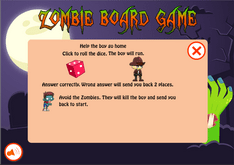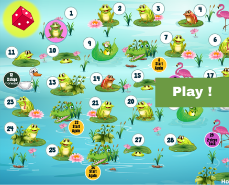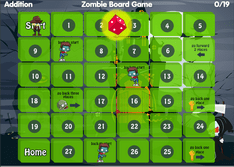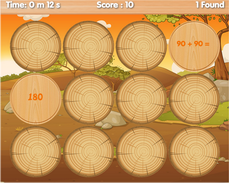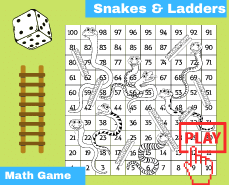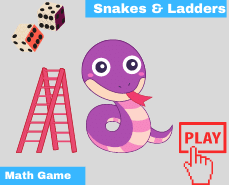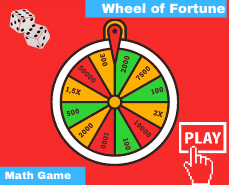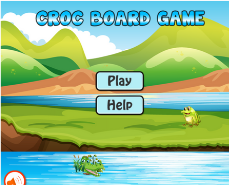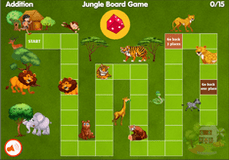1st Grade Jeopardy | 1st Grade Math Jeopardy
Are you looking for an engaging and educational activity for your first-grade students? Look no further than 1st Grade Jeopardy! This exciting game is designed to make learning fun and interactive for young learners. In this article, we will explore the benefits of playing 1st Grade Jeopardy and how it can enhance the educational experience of first-grade students.
Understanding 1st Grade Jeopardy
1st Grade Jeopardy is an interactive game based on the popular television show Jeopardy. It is specifically designed for first-grade students to reinforce their knowledge in various subjects such as math, language arts, science, and social studies. The game follows a question-and-answer format and encourages students to think critically, recall information, and apply their learning in a fun and competitive environment.
Benefits of Playing 1st Grade Jeopardy
Playing 1st Grade Jeopardy offers several benefits for young learners. Here are some key advantages:
-
Enhanced Learning: 1st Grade Jeopardy provides an engaging and interactive way for students to review and reinforce what they have learned in the classroom. It promotes active participation and helps students retain information more effectively.
-
Improved Retention: By incorporating game elements such as points, teams, and competition, 1st Grade Jeopardy stimulates students' motivation and increases their willingness to actively engage in the learning process. This, in turn, enhances their retention of the material.
-
Development of Critical Thinking Skills: The game format of 1st Grade Jeopardy requires students to analyze information, think critically, and apply their knowledge to answer questions. It helps develop their problem-solving abilities and encourages them to think beyond simple memorization.
-
Collaboration and Teamwork: 1st Grade Jeopardy encourages students to work together in teams, fostering collaboration and teamwork skills. It creates a supportive and inclusive learning environment where students can learn from each other and build social connections.
How to Set Up 1st Grade Jeopardy
Setting up 1st Grade Jeopardy is easy and straightforward. Follow these steps to create a memorable and educational gaming experience for your first-grade students:
-
Create Categories: Determine the categories based on the subjects you want to cover. Common categories include math, language arts, science, social studies, and fun facts. Make sure the categories align with your curriculum.
-
Design the Game Board: Create a game board with a grid layout, consisting of different point values and corresponding questions. Assign higher point values to more challenging questions.
-
Prepare Questions: Develop a set of questions for each category and point value. These questions should align with the first-grade curriculum and cover various topics within each subject.
-
Form Teams: Divide the students into teams of 2-4 members. Encourage diverse team compositions to foster collaboration and cooperation.
-
Gameplay: Begin the game by having each team choose a category and point value. Read out the corresponding question, and allow the team a designated amount of time to answer. Teams can confer and provide their response. Award points for correct answers and deduct points for incorrect or incomplete responses.
-
Final Round: Create a final round where teams can wager their points based on their confidence in the subject matter. Ask a challenging question, and award or deduct points accordingly.
-
Declare a Winner: At the end of the game, calculate the points earned by each team and declare a winner. Recognize the efforts and achievements of all teams to promote a positive and inclusive atmosphere.
Incorporating Curriculum into the Game
1st Grade Jeopardy can be a powerful tool to reinforce and supplement the first-grade curriculum. Here are some ideas to incorporate the curriculum into the game:
-
Math: Create categories such as addition, subtraction, shapes, and patterns. Use questions that require students to solve math problems, identify shapes, or complete number patterns.
-
Language Arts: Categories can include vocabulary, sight words, phonics, and sentence construction. Prepare questions that focus on spelling, word recognition, grammar, and reading comprehension.
-
Science: Develop categories like animals, plants, weather, and the human body. Design questions that explore different scientific concepts, such as animal habitats, plant life cycles, weather patterns, and basic human anatomy.
-
Social Studies: Categories can cover topics like community helpers, holidays, maps, and famous people. Create questions that introduce students to important historical figures, cultural celebrations, basic map reading skills, and the roles of community helpers.
Tips for Successful Gameplay
To ensure a successful gameplay experience, consider the following tips:
-
Keep it Engaging: Use colorful visuals, interactive elements, and age-appropriate language to keep the students engaged throughout the game. Incorporate fun sound effects and encourage enthusiastic participation.
-
Provide Support: Offer hints or clues for challenging questions to support students' learning and problem-solving abilities. Create an inclusive atmosphere where students feel comfortable asking for help or clarification.
-
Encourage Sportsmanship: Emphasize the importance of good sportsmanship and respectful behavior during gameplay. Teach students to celebrate both individual and team achievements, fostering a positive and supportive environment.
-
Adapt the Difficulty Level: Adjust the difficulty level of questions based on the students' abilities and prior knowledge. Ensure a balance between challenging questions that promote critical thinking and questions that allow for successful participation.
Enhancing Critical Thinking Skills
1st Grade Jeopardy is an effective tool for enhancing critical thinking skills in young learners. Here's how the game promotes critical thinking:
-
Analyzing Information: By presenting questions in a Jeopardy format, students are required to analyze information, recall relevant knowledge, and draw connections between different concepts.
-
Problem Solving: The game prompts students to solve problems and answer questions within a limited time frame. This encourages them to think quickly and make informed decisions based on the available information.
-
Higher-Order Thinking: 1st Grade Jeopardy challenges students to engage in higher-order thinking skills such as comparing, contrasting, and synthesizing information. They must apply their knowledge to answer questions accurately.
-
Decision Making: When faced with multiple categories and point values, students need to make strategic decisions on which questions to choose based on their confidence and familiarity with the topic.
Fostering Collaboration and Teamwork
1st Grade Jeopardy encourages collaboration and teamwork among students. Here's how the game fosters these essential skills:
-
Team-based Gameplay: By forming teams, students learn to work together, communicate effectively, and share their knowledge and ideas to achieve a common goal.
-
Sharing of Perspectives: In team discussions, students may have different perspectives or approaches to answering a question. This encourages them to listen to others, consider different viewpoints, and reach a consensus.
-
Support and Encouragement: Teammates can provide support and encouragement to one another, boosting individual confidence and creating a positive learning environment.
-
Division of Responsibilities: Within a team, students can assign different roles or responsibilities, such as a team captain or timekeeper. This allows each student to contribute to the team's success and develop their leadership skills.
Adapting 1st Grade Jeopardy for Remote Learning
1st Grade Jeopardy can also be adapted for remote learning environments. Here are some suggestions for conducting the game virtually:
-
Online Platforms: Utilize online platforms such as JeopardyLabs, Kahoot, or Google Slides to create interactive game boards and share them with students during virtual sessions.
-
Screen Sharing: Teachers can share their screen to display the game board, questions, and answers while conducting the game via video conferencing platforms.
-
Breakout Rooms: Divide students into breakout rooms to form teams and facilitate small-group discussions. Assign a team captain or facilitator within each breakout room.
-
Digital Response Tools: Use digital response tools like polling or chat features to collect team answers and keep track of scores.
Overcoming Challenges and Concerns
While 1st Grade Jeopardy is an engaging and educational game, it's essential to address potential challenges and concerns. Here are some strategies to overcome them:
-
Time Management: Ensure that the game progresses at a reasonable pace to cover all the categories and questions without rushing. Set time limits for answering questions to maintain a smooth gameplay experience.
-
Inclusivity: Provide opportunities for all students to actively participate and contribute to the game. Encourage quieter students to share their ideas and thoughts, and ensure that teams work collaboratively without excluding any members.
-
Differentiation: Adapt the difficulty level of questions to accommodate the diverse learning needs and abilities of students. Include a mix of easier and more challenging questions to cater to various skill levels within the classroom.
-
Internet Connectivity: Address potential issues with internet connectivity by having alternative offline activities or backup plans ready in case of technical difficulties.
Real-Life Applications of 1st Grade Jeopardy
1st Grade Jeopardy not only reinforces classroom learning but also has real-life applications. Here are some examples:
-
Family Game Nights: Encourage students to play 1st Grade Jeopardy with their families at home. It can serve as a fun and educational activity that involves parents or guardians in their child's learning journey.
-
Interactive Assessments: Use 1st Grade Jeopardy as an alternative assessment tool to gauge students' understanding of specific topics. It can provide insights into their knowledge retention and areas that may require further attention.
-
Special Classroom Events: Incorporate 1st Grade Jeopardy into special classroom events, such as holiday parties or end-of-year celebrations. It adds an element of excitement and creates memorable learning experiences for students.
Conclusion
1st Grade Jeopardy is a fantastic educational game that brings joy and excitement to the first-grade classroom. By engaging students in a fun and interactive way, it reinforces their learning, enhances critical thinking skills, promotes collaboration, and encourages active participation. Incorporate this game into your teaching repertoire, and watch your students thrive as they become enthusiastic learners.
FAQs
-
Q: How many students can participate in 1st Grade Jeopardy? A: The number of students can vary based on your classroom size and team composition. It is recommended to form teams of 2-4 students to encourage collaboration.
-
Q: Can 1st Grade Jeopardy be played individually? A: While the game is designed for team play, you can modify it for individual gameplay by adjusting the rules and point system. However, team play promotes collaboration and social interaction among students.
-
Q: Is it possible to customize the categories and questions in 1st Grade Jeopardy? A: Absolutely! You can tailor the game to align with your specific curriculum by creating categories and questions that cover the desired topics and learning objectives.
-
Q: How can I ensure fair gameplay during 1st Grade Jeopardy? A: To ensure fair gameplay, establish clear rules, monitor team discussions to discourage cheating, and emphasize the importance of honesty and sportsmanship.
-
Q: Are there any online resources available for creating 1st Grade Jeopardy games? A: Yes, there are various online platforms like JeopardyLabs and Kahoot that provide templates and tools for creating interactive Jeopardy-style games.
The Importance of Early Math Education
Early math education plays a vital role in a child's cognitive development. It helps them develop critical thinking, problem-solving skills, and logical reasoning abilities. By introducing mathematical concepts at an early stage, children can build a strong mathematical foundation, which will benefit them throughout their academic journey and beyond.
What is 1st Grade Math Jeopardy?
1st Grade Math Jeopardy is an educational game inspired by the popular TV show "Jeopardy." It is specifically designed for first-grade students to reinforce their math skills in a fun and interactive way. The game incorporates a question-and-answer format, where students compete in teams to solve math problems across different categories.
Benefits of Using 1st Grade Math Jeopardy
-
Engaging Learning Experience: 1st Grade Math Jeopardy transforms traditional math lessons into an exciting and interactive experience. It captures students' attention and motivates them to actively participate in the learning process.
-
Reinforces Mathematical Concepts: By presenting math problems in a game format, students can reinforce their understanding of fundamental concepts such as addition, subtraction, shapes, patterns, and more.
-
Develops Critical Thinking Skills: 1st Grade Math Jeopardy encourages students to think critically and apply their knowledge to solve problems within a limited time frame. This enhances their analytical skills and promotes strategic thinking.
-
Promotes Collaboration and Competition: The game is typically played in teams, fostering a sense of collaboration and healthy competition among students. It creates an environment where they can learn from each other, share ideas, and build teamwork skills.
-
Boosts Confidence and Motivation: Success in solving math problems and earning points in 1st Grade Math Jeopardy boosts students' confidence and motivates them to further explore the subject. It helps dispel the fear or apprehension associated with math.
How to Play 1st Grade Math Jeopardy
Playing 1st Grade Math Jeopardy involves the following steps:
- Divide the class into teams.
- Select a category and point value from the game board.
- Read the corresponding math problem aloud.
- The team that buzzes in first has an opportunity to answer the question.
- If the team answers correctly, they earn the designated points.
- If the team answers incorrectly, the opportunity passes to the next team.
- Repeat the process for each question until all the points have been exhausted.
- The team with the highest score at the end of the game emerges as the winner.
Incorporating 1st Grade Math Jeopardy in the Classroom
To incorporate 1st Grade Math Jeopardy effectively in the classroom, teachers can follow these strategies:
-
Align with Curriculum: Design the game to align with the math curriculum and focus on topics that students are currently learning or need additional practice with.
-
Differentiate Questions: Create a range of difficulty levels for the questions, allowing students with varying proficiency levels to participate and be challenged accordingly.
-
Integrate Technology: Utilize digital platforms or interactive whiteboards to display the game board, questions, and answers, making it more visually appealing and interactive.
-
Encourage Participation: Ensure every student in the class gets an opportunity to participate actively by rotating team members or allowing individual responses during certain rounds.
-
Provide Rewards: Recognize and celebrate student achievements during the game by awarding small prizes or certificates to the winning team or individual participants.
Interactive Math Learning Beyond the Classroom
1st Grade Math Jeopardy can also be extended beyond the classroom to provide students with additional opportunities for interactive math learning. Here are some suggestions:
-
Online Platforms: Explore online platforms that offer virtual versions of Math Jeopardy games. These platforms often provide a wide range of pre-made game templates, making it easy for educators to find suitable content for their students.
-
Home Engagement: Encourage parents to play 1st Grade Math Jeopardy with their children at home. This helps reinforce classroom learning and strengthens the parent-child bond through shared educational activities.
-
Math Club or Competitions: Organize math clubs or competitions where students can participate in math-related games, including 1st Grade Math Jeopardy. This fosters a sense of community and promotes a positive attitude towards math.
Tips for Creating Engaging 1st Grade Math Jeopardy Games
To create engaging 1st Grade Math Jeopardy games, consider the following tips:
-
Clear Instructions: Provide clear instructions for the game format, rules, and point system to ensure students understand how to play.
-
Visual Appeal: Use colorful visuals, appealing graphics, and age-appropriate illustrations to make the game visually engaging and captivating for young learners.
-
Varied Question Types: Include a mix of multiple-choice, fill-in-the-blank, and problem-solving questions to cater to different learning styles and challenge students effectively.
-
Timed Rounds: Introduce timed rounds to add excitement and encourage quick thinking and decision-making skills.
-
Interactive Elements: Incorporate interactive elements such as sound effects, animations, or countdown timers to make the game more immersive and entertaining.
Conclusion
1st Grade Math Jeopardy offers a fantastic opportunity to make math learning enjoyable and interactive for first-grade students. By incorporating this game into the classroom and beyond, educators can engage students in a fun and stimulating way while reinforcing essential mathematical concepts. With its numerous benefits, 1st Grade Math Jeopardy paves the way for an exciting math journey, fostering a lifelong love for the subject.
FAQs
1. Is 1st Grade Math Jeopardy suitable for all students? Yes, 1st Grade Math Jeopardy can be adapted to different proficiency levels, allowing all students to participate and be challenged accordingly.
2. Can 1st Grade Math Jeopardy be played online? Yes, there are various online platforms that offer virtual versions of Math Jeopardy games, making it accessible for remote learning or home engagement.
3. Does 1st Grade Math Jeopardy require any special equipment? No, 1st Grade Math Jeopardy can be played with basic classroom materials such as a whiteboard, markers, and buzzers or simply by using digital resources.
4. How can I create my own 1st Grade Math Jeopardy game? You can create your own 1st Grade Math Jeopardy game by using templates available online or by designing the game board, questions, and answers yourself.
5. Is 1st Grade Math Jeopardy only beneficial for math learning? While 1st Grade Math Jeopardy primarily focuses on math skills, it also enhances critical thinking, collaboration, and strategic decision-making abilities, which are valuable in various aspects of life.
![]() Addition math practice - pirates at sea game
Addition math practice - pirates at sea game
![]() Counting from 1 to 3 - Rally car race game
Counting from 1 to 3 - Rally car race game
![]() Counting up to 10 - Catapult game
Counting up to 10 - Catapult game
![]() Counting up to 5 - Pirate game
Counting up to 5 - Pirate game
![]() Learn numbers beyond 20 - rally game
Learn numbers beyond 20 - rally game
![]() Patterns - Pirates at sea game
Patterns - Pirates at sea game




